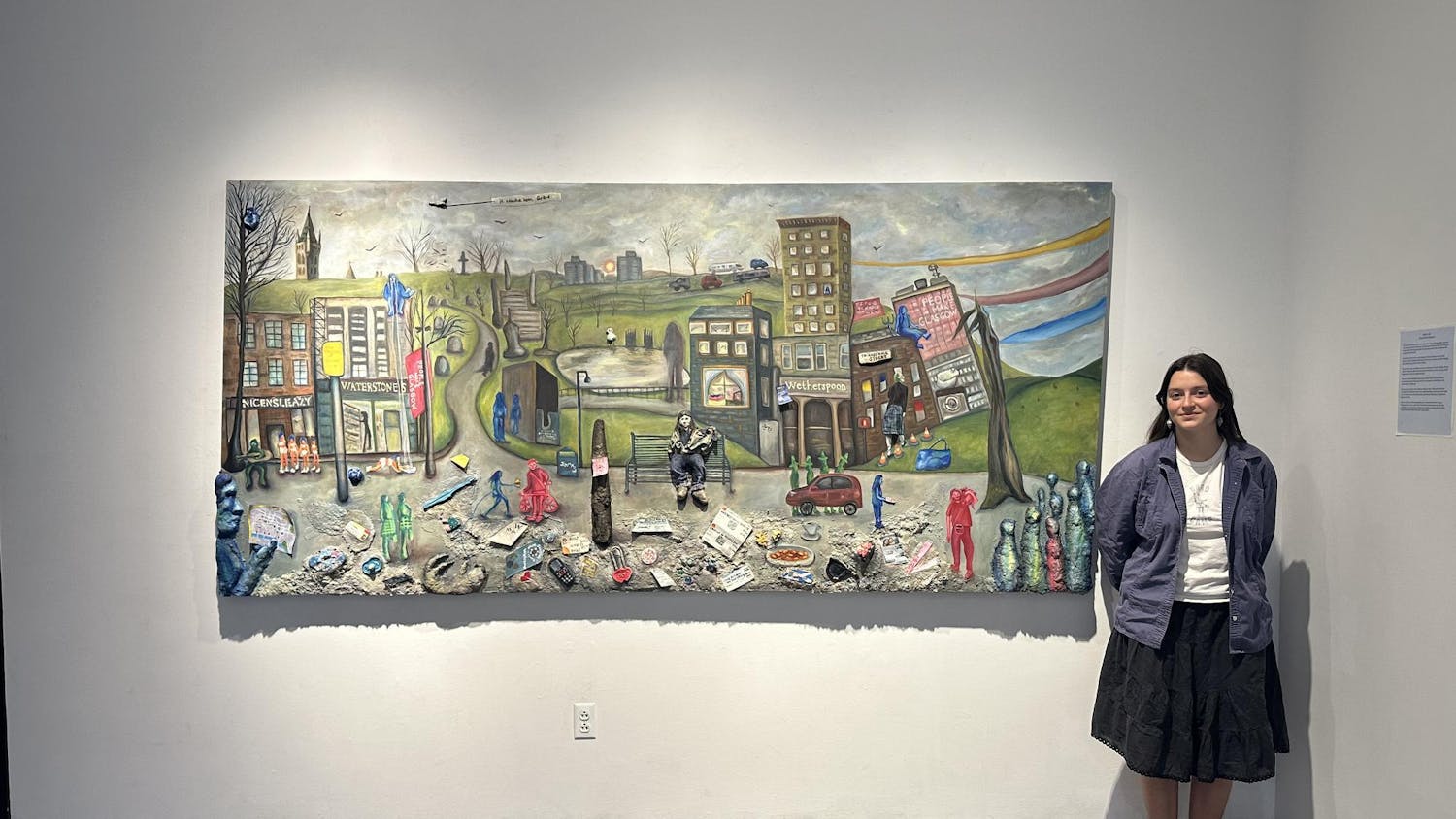Artistic protest is almost always an exercise in futility. It’s a medium that too easily devolves into one-track cliches which cease to uncover any greater truth. Books, songs and films explicitly produced to criticize needless foreign wars or affronts to human rights miss the point entirely. They are plagued by a dangerous and contrived hindsight, trading bold prescience for platitude-ridden intentionality. Organic urgency — not calculated sentimentality — is what produces good artistic protest.
Playwright Katori Hall’s “The Mountaintop” serves as a fine instance of artistic protest. Providence’s Trinity Repertory Company’s recent production is an account of the last day of Martin Luther King Jr.’s life. After seizing a Memphis audience with his “I’ve Been to the Mountaintop” speech, the reverend, played by actor Joe Martin Jr., retires for the night at the storied Lorraine Hotel, where he is subject to the company of a particularly lively hotel maid, Camae, refreshingly portrayed by female lead Mia Ellis. The theatrical work revolves around dialogue between the quick-tempered Camae and a down-trodden King on the night of his assassination — a stylistic decision that imbues the story with humanity.
Marked by no shortage of grace or subtlety, the extended encounter explores the pair’s interesting dynamic with rapid-fire, colloquial exchanges. The King on display in “The Mountaintop” is uncertain, battered and crass, a characterization seamlessly developed by the play’s strong and dialect-heavy script. Tongue-in-cheek existential musings over Pall Mall cigarettes and clear flirtation between King and Camae gave the play a honed humorous edge. The astute, hilarious aspects of the play are well juxtaposed with the more sorrowful elements; namely, King’s humbling concern regarding the success of his efforts to combat racism. “I don’t want to be a martyr,” King says, in an anguished delivery. “I’m just a man,” he mutters, disabusing the audience of his perceived infallibility as an esteemed civil rights leader.
King, apprehensive about his ability to effect social change, meets his foil in the immensely confident and capable Camae. Knocking the reverend down a peg one second and consoling him the next, Camae is a positively wonderful character. Part-way through the play, at the height of King’s disquietude, the hotel maid reveals herself as an angel, a physical manifestation of the piety that pervades King’s activism. She is a living expression of the ineffable and uncompromising divine. “Evil is not under God’s jurisdiction; good is” Camae says, advocating the virtues of clinging to the heavens. Newly reaffirmed in his resolve to fight for equality, King dies, assassinated outside the Lorraine.
The play ends with a series of clips illustrating the social progress made by black activists since King’s passing — an uplifting display that is hauntingly and evocatively capped by the New York Times’ recent headline declaring President Donald Trump’s 2016 victory, a figurative end for so much of the progress made by King and others. The synergy between the play’s themes and the final film clips is powerful, underscoring the frustrating fragility of activist movements. In the emotionally-charged talk that followed the play, lead actor Martin mentioned the theatrical work was not constructed as an intentional act of protest, and that is precisely why it is so successful in conveying its nuanced take on civil rights and in effectively challenging inequality. The production’s poignancy emerges from, to use the actor’s words, a simple commitment to “empathy” and “listening.”
It is a shame that the performance’s ending is not accompanied by Sam Cooke’s “A Change Is Gonna Come,” a song Rosa Parks herself turned to in the wake of King’s death. Analogous to King’s anguish, the ballad offers a sharp contrast to the smoke vainly blown by so much of politically-conscious art — a true in-the-moment translation of the raw desperation of Cooke’s own experience of being turned away from a whites-only motel.
Similar to the poignant nature of Cooke’s anthem, “The Mountaintop” — astute, enjoyable and incredibly relevant — is a masterful work of theater.




